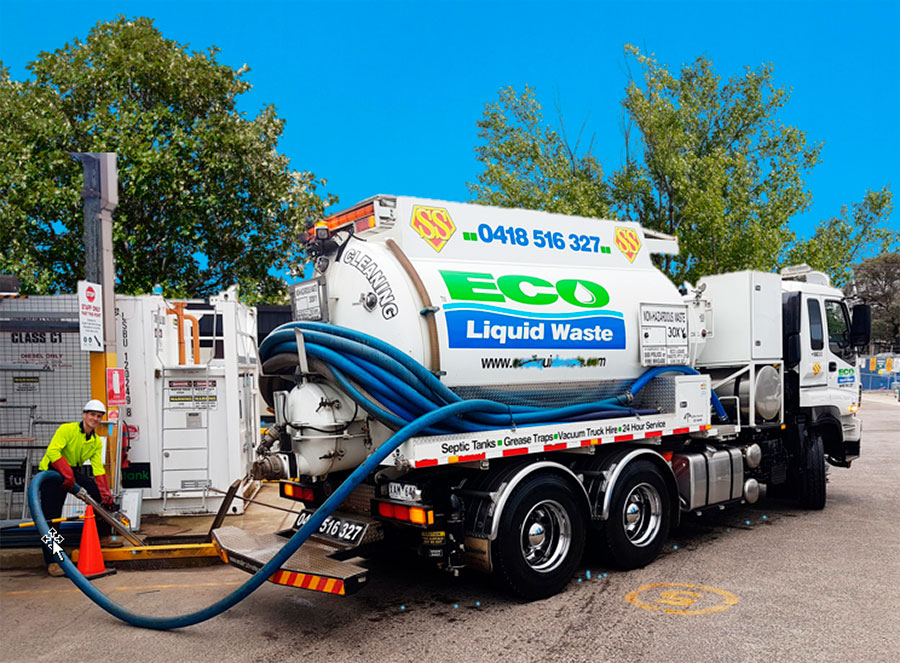Reclaim Waste - An Overview
Table of ContentsReclaim Waste Fundamentals ExplainedReclaim Waste Can Be Fun For EveryoneSome Known Questions About Reclaim Waste.The 4-Minute Rule for Reclaim WasteThe Main Principles Of Reclaim Waste
Check out the types, events, and forms of liquid waste. Residential sewer waste describes the waste and items from a household sewage-disposal tank. This kind of waste is developed by people in houses, colleges, and other buildings. This only consists of sewage-disposal tanks that have a drainpipe field. The correct monitoring and disposal of domestic sewer waste require fluid waste to be moved to a sewer treatment plant where the correct techniques and tools are related to purify and deal with waste.
Commercial waste usually includes prospective threats, such as flammable materials or a combination of liquid and solid waste items, and calls for a much more innovative and detailed disposal process. The disposal of business waste generally includes the purification of waste before transportation to make sure safe and appropriate disposal. Hazardous waste is developed from byproducts and overflow of industrial processes and manufacturing.
This kind of waste can not use the very same sewage management transportation or processes as septic or business fluids. The industrial waste management process requires the examination and testing of liquid waste before it undergoes the disposal procedure (industrial wastewater treatment). Overflow waste is the fluid waste that originates from overflow and excess stormwater in highly booming locations or cities
Runoff waste can cause contamination and flooding if not handled properly. Learn much more about sewer cleaning and waste monitoring. Ensuring proper waste monitoring can protect against calamities and lower ecological damage. Both individuals in domestic settings and specialists in business or manufacturing markets can gain from understanding the processes and regulations of fluid waste monitoring.
Some Of Reclaim Waste
Contact PROS Providers today to find out about our waste management and disposal solutions and the appropriate means to care for the liquid waste you create.
Do you understand what takes place to your water when you disengage, flush the bathroom or drain the cleaning device? No? Well, it deserves knowing. This supposed 'wastewater' is not only an essential resource yet, after treatment, will certainly be released to our land, rivers or the ocean. Made use of water from toilets, showers, bathrooms, kitchen sinks, washings and industrial processes is called wastewater.

water used to cool equipment or tidy plant and equipment). Stormwater, a kind of wastewater, is runoff that streams from farming and urban areas such as roof coverings, parks, gardens, roads, courses and gutters into stormwater drains pipes, after rainfall. Stormwater flows untreated straight to neighborhood creeks or rivers, ultimately getting to the sea.
The smart Trick of Reclaim Waste That Nobody is Talking About
In Queensland, most wastewater is treated at sewage treatment plants. Wastewater More Help is delivered from residential or commercial websites with a system of drains and pump stations, called sewerage reticulation, to a sewage therapy plant. City governments construct, maintain and run most sewage therapy plants. Operators are accredited under the Environmental Defense Act 1994 to release cured wastewater at an appropriate ecological standard right into waterways.
The Department of Natural Resources recommends city governments concerning handling, operating and maintaining sewage systems and treatment plants. In unsewered locations, neighborhood federal governments may require owners to set up private or household sewer therapy systems to treat residential wastewater from bathrooms, kitchen areas, restrooms and laundries. The Division of Natural Resources authorises the usage of house systems when they are shown to be effective.
In some new neighborhoods, therapy of some stormwater to eliminate trash, sand and crushed rock has started using gross toxin traps. Wastewater therapy occurs in 4 stages: Eliminates strong matter.
Wastewater then streams right into large storage tanks where solids settle and are eliminated as sludge. Oil and scum are skimmed from the surface area. Makes use of little living microorganisms called micro-organisms to damage down and eliminate continuing to be dissolved wastes and great fragments. Micro-organisms and wastes are incorporated in the sludge. Eliminates nitrogen and phosphorus nutrients that can create algal blooms in our waterways and intimidate aquatic life.
Not known Facts About Reclaim Waste
Nutrient removal is not available at all sewage treatment plants since it needs expensive specialised equipment. Clear fluid effluent created after treatment may still contain disease-causing micro-organisms - liquid waste disposal.

This usually indicates wastewater needs to be treated or pollutants eliminated before it can be released to rivers. Many wastewater flows into the sewage system. Under the Act, city governments administer authorizations and licences for eco pertinent activities (ERAs) involving wastewater releases that might have a regional impact. The division provides authorizations and licences to Periods including wastewater releases that might have a regional or statewide influence.
Not known Facts About Reclaim Waste
Otherwise, samples are taken for research laboratory analysis. Typically many examinations are needed to establish the degrees of each of the various toxins such as oils, hefty metals and pesticides in water. Tracking gives valid information regarding water top quality and can validate that permit conditions are being met. The info acquired with surveillance provides the basis for making water quality decisions.
Comments on “An Unbiased View of Reclaim Waste”